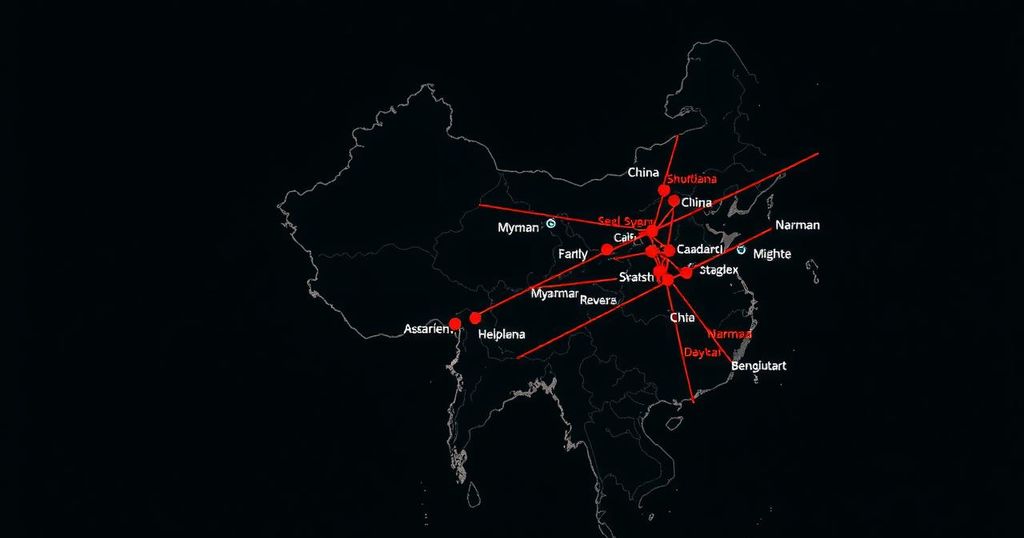Myanmar’s Fractured State: Implications for Regional Stability and the Role of China
Myanmar, a nation characterized by ethnic, religious, and ideological fragmentation, faces an increasingly precarious situation following the military coup in 2021 and the subsequent civil unrest. As the military junta grapples with mounting challenges to its authority, including a significant loss of territorial control to ethnic armed groups, the possibility of the state’s disintegration looms large. The implications of such an outcome would resonate not only within Myanmar, impacting its 54 million citizens, but would also destabilize surrounding regions such as Bangladesh and Southeast Asia. Humanitarian crises, already dire, would only worsen as separatist and non-state actors gain strength. Furthermore, this fracturing poses a significant threat to China’s ambitions of regional dominance, questioning the efficacy of its leadership if it fails to stabilize Myanmar.
Currently, approximately two-thirds of Myanmar is outside the junta’s control, and an ongoing offensive by northern ethnic factions has further destabilized the regime, which remains restricted to urban centers and the capital, Naypyidaw. Reports from the United Nations portray an alarming escalation in human rights abuses, including military actions leading to civilian casualties and widespread displacement, which have increased by over 50 percent in just six months. Recent drone assaults have also tragically highlighted the plight of the Rohingya minority, previously targeted by military genocide.
Despite international concerns over the junta’s ability to maintain power, the fragmented opposition lacks a cohesive national agenda, complicating the prospect for democratic restoration. While neighboring China expresses unease regarding escalating instability along its extensive border with Myanmar, its role in the crisis remains duplicitous. Instead of fostering a return to democratic governance, China appears to manipulate ethnic divisions, pursuing its geostrategic interests by covertly supporting various local factions while ostensibly advocating for stability.
The situation necessitates urgent action from the Association of Southeast Asian Nations (ASEAN) and international stakeholders. Recognizing and engaging with ethnic armed groups, while fraught with challenges due to their diverse and often oppressive agendas, may be essential to addressing the crisis’s complexities. Furthermore, intensified diplomatic pressure, expanded sanctions, and advocacy for humanitarian efforts are crucial to avert further chaos.
In conclusion, as Myanmar teeters on the brink of disintegration, the international community, led by entities such as the United Kingdom and ASEAN, must prioritize this escalating crisis and commit to a concerted effort aimed at reestablishing peace and stability. The time for decisive action is now, lest Myanmar’s plight be relegated to a forgotten crisis.








Post Comment